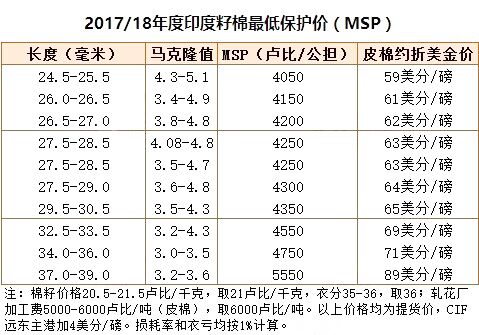On February 1, India announced the last budget before the 2019 general election. In the budget, Indian Finance Minister Arun Jaitley announced that it would increase the minimum purchase price (MSP) of summer crops. The new MSP will be based on 1.5 times the crop production cost. calculate. For seed cotton, this means that the MSP in 2018/19 will increase by more than 22% compared to this year.

The Indian industry has had mixed reactions to the budget. The Confederation of Indian Textile Industry (CITI) welcomed some of these initiatives, including reducing the corporate income tax rate for small and medium enterprises, providing budget for simplification and upgrade of the State Tax Refund (ROSL) process, and the revised Technology Upgradation Fund (ATUF) scheme, etc. . However, regarding the measures to increase the MSP of cotton and other crops, CITI said that this move will benefit cotton farmers, but will push up domestic cotton prices in India. At present, about 70% of India’s cotton is exported. This move will increase the costs of textile companies and exporters, and will ultimately have a negative impact on the cotton industry.
At the same time, the budget did not make any adjustments to the import tax rates for yarn and fabrics, and CITI expressed disappointment. The implementation of GST has resulted in imported yarn and ready-made garments being priced lower than domestic prices, and India’s domestic textile and apparel industry has suffered a major setback. CITI has been calling on the government to address this imbalance to ensure the international competitiveness of India’s domestic textile and apparel industry. However, there has been no progress yet. India announces new budget to increase minimum purchase price of seed cotton
AAA anti-UV fabric network FSGRETEGSDFW






